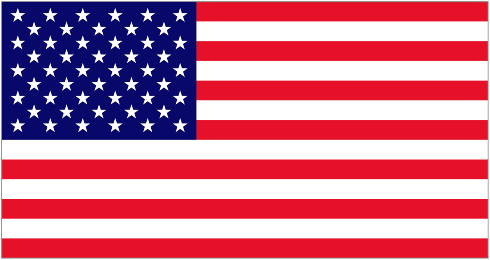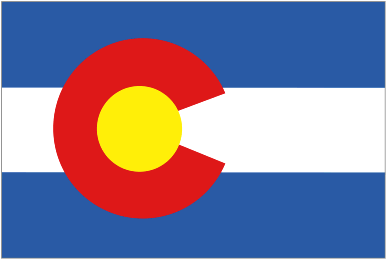Note to my faithful reader(s): I wrote part 1 of this 2-part series as a response to a debate prompt on helium.com, an online writers' community. Imagine my shock when, the very next morning, I saw a new prompt on that same site asking whether further privatization and deregulation of the healthcare system would solve the problem. I was forced to chime in on this, and the following was the result:
Many Americans believe that the solution to our healthcare dilemma is to further privatize and deregulate the system. If we free up the healthcare market, there is some reason to believe that it will behave like other free markets - costs will go down, allowing more people to get insurance, and quality will go up. This is the basis behind most Democrats' plans for what they call universal healthcare. However, this notion fails to take into consideration a few basic aspects of the healthcare system that make further privatization and deregulation a bad idea.
Firstly, the limited market. Let's say you're in the business of selling cars. It can reasonably be assumed that cars will never go out of style, and that, as more and more people around the world reap the benefits of industrialization, one of the things they will buy with their newfound money will be cars. Therefore, in this day and age, the automotive industry has a virtually unlimited market. This causes car companies to compete with each other for the constant stream of new customers. This is one of the prerequisites to a truly successful and beneficial free market: If there is not a growing market, a good deal of the helpful competition simply does not happen. If you've been buying Ford cars your whole life, you're less likely to go out and buy a Chevy, almost entirely regardless of the corporate competition going on. On the other hand, someone who is a first time car buyer reaps the full benefits of capitalism - Ford and Chevy both want them, so they'll both lower their prices and increase the quality of their products to win them over.
Healthcare doesn't work this way. There are a limited number of people in the United States (with a yearly population growth of less than .9%), and an even smaller number of people who are not already insured. Once all of those 40 million or so people got coverage, the burst of corporate competition that brought that about would immediately come to a halt. And after that point, there would be virtually NO market growth, and very limited competition, and corporations would be free to hike up their prices as much as they see fit. If the only two car companies in America were Ford and Chevy, and neither company had any new customers to entice, what's to stop them from both, little by little, increasing their prices?
This leads me nicely toward the second reason further deregulation of healthcare is unfeasible: the obvious greed of the conglomerates which currently have control over the system. If, as in the aforementioned scenario, they became able to raise their prices, they absolutely would. These corporations clearly do not hold themselves to very high moral standards - just watch "Sicko", or ask any of the millions of people who have struggled with their health insurance providers. Corporations that make money based on not giving people healthcare would have no qualms about raising prices, if it was a feasible business practice, which it is now and still would be under a further deregulated system. Even though the initial burst in competition would probably allow many of the currently uninsured people to become insured, eventually corporations would raise their prices again, once again excluding more and more people from the system while keeping corporate profits intact, and even growing.
Even if further deregulation and privatization of healthcare worked, and managed to permanently extend insurance coverage to all Americans, there still exist fundamental flaws in ANY privatized healthcare system. HMOs profit, and the system survives, based on how much healthcare they can deny their customers. This proposed plan would only give that same crappy coverage to everyone. That's like having an automotive industry in which Ford increases its sales and profits by building cars that break down beyond repair at 5,000 miles. And it's even worse, because we're not talking about a luxury, but a basic human right.
Clearly, this proposal is not the right way to handle the healthcare crisis. The best answer to our healthcare woes is not further "freeing up the market", but changing the entire system to a universal, single-payer, and yes, socialized plan.
Tuesday, October 2, 2007
Monday, October 1, 2007
'Yes' to Socialized Healthcare
When a nation's institutions are insufficient to meet the needs of the people, it is the government's responsibility to change national policy and fix those institutions. When every other industrialized nation in the world has adopted a different system, and it is clear that that system works far better than the one that we have, this makes the government's job in reforming the broken institution simple.
Such is the case with healthcare in America. The system is clearly broken - that's not even really up for debate. Insurance companies make money by not giving care. 31 cents on every dollar of healthcare spending goes to maintaining the conglomerates that have a stranglehold on it. Over 40 million Americans are uninsured, and even those who are insured must pay high premiums, co-pays, and deductibles, just to get insurance coverage that is clearly sub-par.
These same problems, or versions thereof, plagued every other industrialized nation as well. But while the American government has refused to address the issue, all these other nations have faced the problems, and fixed them. Socialized medicine has worked incredibly well for these nations - and it would work for us too.
One of the major arguments against socialized healthcare is that under such a system, it is necessary to ration care. A socialist system, in other words, would not be able to pay for everything for everyone. This is a sad truth. But it is a sad truth shared by ANY healthcare system. In the current healthcare system of the United States, over 40 MILLION people do not have insurance - that's one out of every seven Americans being "rationed" out of EVERY type of healthcare. Doesn't it make more sense to base the necessary rationing on the importance of different medicines and procedures, rather than on the patient's ability to pay?
Some people are still resistant to the concept of socialized medicine because of communism anxiety leftover from the Cold War. We cannot socialize our vital national institutions, they say, because that puts us on the path toward communism! While I agree that communism is the last thing this nation needs, the fact of the matter is that having a few socialized institutions does not make a country communist. For example: Since the beginning of the public education system in America, it has been a socialist institution - it is run and paid for by the government. Then there's our police, our firefighters, our infrastructure, and our military - all socialist. Yet no one would argue that America is a communist nation. Why, then, are we afraid of making one more of our vital institutions socialist, for the good of the people?
It's time to break free of the hold that unbridled capitalism has on the basic human right to healthcare. We consider ourselves to be the wealthiest, most advanced nation in the world, so we should work on having the best healthcare. Let's get on board the system that has worked for every other industrialized nation in the world.
Such is the case with healthcare in America. The system is clearly broken - that's not even really up for debate. Insurance companies make money by not giving care. 31 cents on every dollar of healthcare spending goes to maintaining the conglomerates that have a stranglehold on it. Over 40 million Americans are uninsured, and even those who are insured must pay high premiums, co-pays, and deductibles, just to get insurance coverage that is clearly sub-par.
These same problems, or versions thereof, plagued every other industrialized nation as well. But while the American government has refused to address the issue, all these other nations have faced the problems, and fixed them. Socialized medicine has worked incredibly well for these nations - and it would work for us too.
One of the major arguments against socialized healthcare is that under such a system, it is necessary to ration care. A socialist system, in other words, would not be able to pay for everything for everyone. This is a sad truth. But it is a sad truth shared by ANY healthcare system. In the current healthcare system of the United States, over 40 MILLION people do not have insurance - that's one out of every seven Americans being "rationed" out of EVERY type of healthcare. Doesn't it make more sense to base the necessary rationing on the importance of different medicines and procedures, rather than on the patient's ability to pay?
Some people are still resistant to the concept of socialized medicine because of communism anxiety leftover from the Cold War. We cannot socialize our vital national institutions, they say, because that puts us on the path toward communism! While I agree that communism is the last thing this nation needs, the fact of the matter is that having a few socialized institutions does not make a country communist. For example: Since the beginning of the public education system in America, it has been a socialist institution - it is run and paid for by the government. Then there's our police, our firefighters, our infrastructure, and our military - all socialist. Yet no one would argue that America is a communist nation. Why, then, are we afraid of making one more of our vital institutions socialist, for the good of the people?
It's time to break free of the hold that unbridled capitalism has on the basic human right to healthcare. We consider ourselves to be the wealthiest, most advanced nation in the world, so we should work on having the best healthcare. Let's get on board the system that has worked for every other industrialized nation in the world.
Subscribe to:
Posts (Atom)




